
User Experience Design MA (Online)
Apply key principles of user-centered design to create original work.
Course overview
Develop user-centred design skills and build an employment-ready portfolio through this collaborative and practical online MA course. You’ll learn, apply and showcase the iterative design processes essential for a successful career in user experience (UX) design.
Exploring human-computer interaction and user-centred design in diverse domains, you will learn to evaluate user needs and improve experiences. You’ll develop the ability to reflect on working methods and collaborate effectively and critically, as you consider cognitive psychology and the impact of artificial intelligence (AI) to better understand how people engage with digital products.
You’ll practice interaction design and learn to pitch and present your concepts, developing a robust portfolio in preparation for industry or further academic pursuits.
This User Experience Design master's course is delivered by Falmouth's Games Academy, which has been ranked 11th in the world for postgraduate games courses, No.1 for both undergraduate and postgraduate Games Design in England (The Princeton Review 2025).
Why study this course at Falmouth?
• Learn how to produce original designs based on your own intellectual property, building a unique and industry-ready portfolio of work
• Benefit from cutting-edge mentorship by an experienced team including tutors working in a wide variety of professional UX roles, graduating equipped to apply your skills and knowledge across an exciting range of sectors
• Collaborate on practical projects with a diverse worldwide cohort, enriching your perspectives and knowledge of international design practices
• Expand your learning and your professional networks at our optional in-person events
Start dates: January / May / September
(Three intakes per year)

Interested in studying this Online course? Join our virtual Q&A on 17 March.
Find out moreCourse details
On this UX Design masters, you will learn to create engaging interfaces and interactions, appropriately evaluating usability and professionally applying key principles of experience design. You'll gain the ability to critically reflect upon and evaluate working methods and find the most effective ways to collaborate on projects. You'll also learn how to pitch your ideas; communicating concepts and presenting artefacts visually with clarity and enthusiasm. You will graduate with the academic independence and expertise to give you a head start in this competitive and growing sector.
Modules
The modules have been specifically designed to be studied in a non-linear order, with the order in which you’ll study the modules depending on when you begin the course.
MA
You will need to complete four 30-credit modules and one 60-credit Major Project (180 credits in total). All modules on the course are compulsory and must be passed in order to complete the award.
From module information to course aims and assessment criteria, discover the full course details for the MA.
PGDip
You will need to complete four 30-credit modules (120 credits in total), and will not complete a Major Project.
From module information to course aims and assessment criteria, discover the full course details for the PGDip.
Module details
By devising a series of small-scale creative artefacts, you'll use your existing ideas about development practice and then experiment with new approaches to challenge these ideas. This will enable you to create a personal case study, from which you can define how to expand and enrich your practice. Beyond the personal case study, you'll gain a broader sense of the contexts in which these practices are applied across disciplines.
(30 credits)
In this module you will leverage design methods in an experimental way to design creative and elegant user experiences. You'll learn the core principles, methods and techniques of UX design, using concepts from a range of disciplines to develop a sequence of explorative designs and interactive prototypes. You'll also learn how to apply user-centered approaches to produce artefacts that meet the requirements of end users and adhere to best practice.
(30 credits)
You'll work in a multi-disciplinary team on a problem-led creative project. This will typically, but not necessarily, be a small game or creative app. You'll work together to situate, design, implement and evaluate your creative artefact. With the support of a supervisor, you'll strategically manage scope, workflow, communication roles and responsibilities. At the end, you will have pitched and produced an original artefact, based on your own intellectual property, that clearly illustrates how you can engage an audience.
(30 credits)
Here, you'll learn the key techniques of human-computer interaction (HCI). This is a multidisciplinary field focusing on the interaction between humans and computers. You'll refine your understanding of HCI through the specification, design, implementation and evaluation of an artefact. This is typically a small-scale experimental proof-of concept. Questions and challenges will be shaped by our partners from the digital creative industries and from fields relevant to creative technologies. This will enable you to work towards an industry-led brief.
You'll work on a major research and development project, either independently or with others. This will allow you to expand and consolidate your skills of devising, developing and executing an extended development project. You can build upon your projects from other modules or develop a new specialist concept. You should finish the course with a polished project of a publishable quality. A supervisor will act as your mentor and adviser.
(60 credits)
We regularly review course and module content to ensure our students receive a high-quality and rewarding academic experience. As such, there may be changes made to the curriculum which are not immediately reflected in the content displayed on our website. Optional modules may be updated to maintain the best experience. Any students or applicants affected will be informed of approved changes directly.
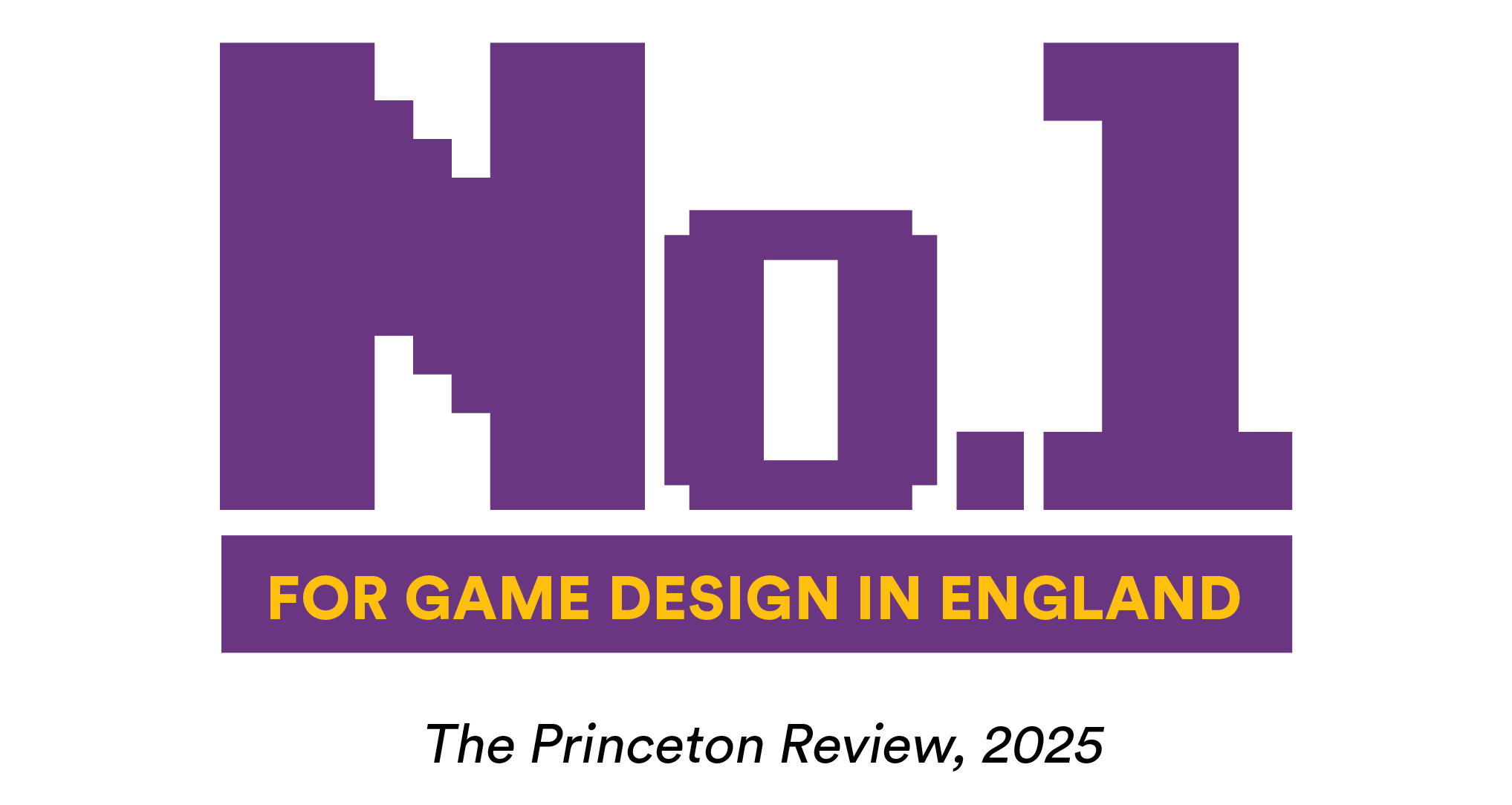

Got questions about the course, funding or online study?
Your Course Advisor Simone is here to help.
Our students and graduates

"The most valuable aspect of the course was the opportunity to interact and collaborate with professors, tutors and fellow students from across the world."
Camilla Wong, graduate

"Whenever I had a question, or needed to have a chat with someone, I always received a quick response, but I was also given the independence to do everything at my own pace."
Jack Jenkins, graduate
Stories from our community

Game Development graduate on making retro games and his YouTube following
29 January 2026
From building minigames in LittleBigPlanet as a teenager to releasing homebrew (unofficial hobbyist)...
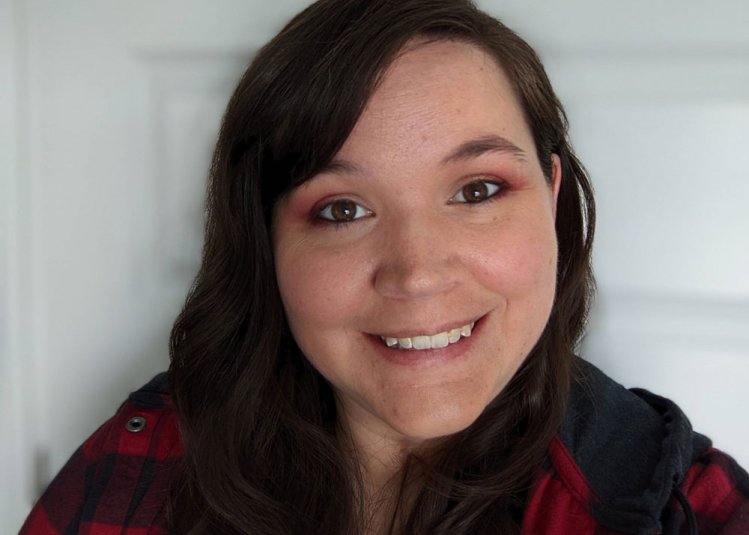
Why I returned to study an Indie Game Development master’s while teaching
27 January 2026
After years working across games and education, Jess Bradshaw chose to return to study with a clear ...

Game Art graduate reaches finals in international team challenges
20 January 2026
BA(Hons) Game Art and MA Game Art graduate Eden Gates has reached the finals of two team-based game ...
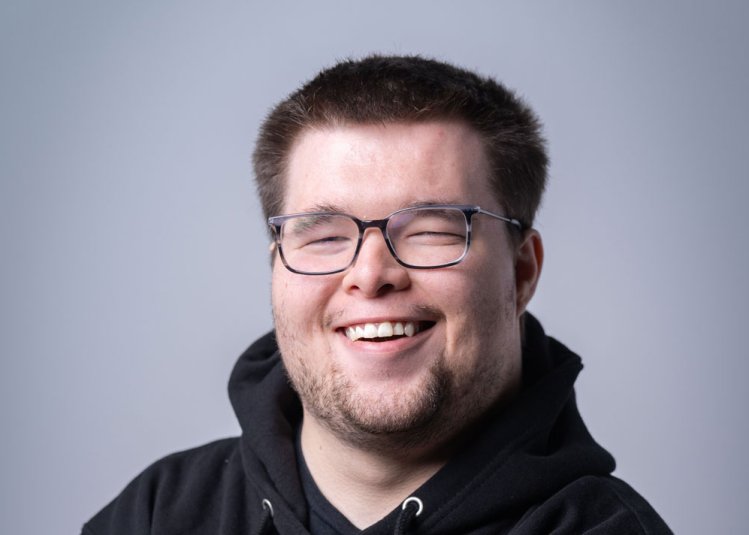
Game Development Writing graduate builds career in community management
25 November 2025
For Liam Gregory, studying Game Development: Writing BA(Hons) at Falmouth opened the door to far mor...

What is Creative Computing?
24 November 2025
Senior Lecturer in Computing, Matt Watkins explores what creative computing is and how it’s transf...

Falmouth University awarded £1.4m to power the future of creative design and manufacturing
18 November 2025
New state of the art design and advanced manufacturing facilities for students at Falmouth Universit...
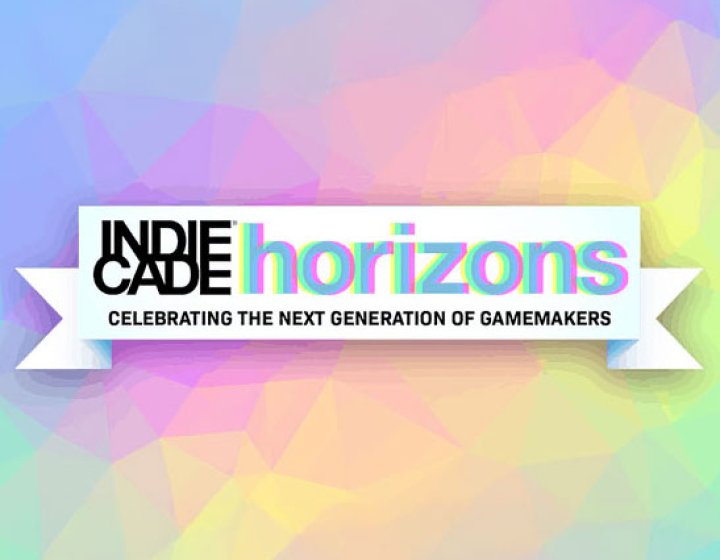
Dr William Huber honoured with Horizons Faculty of Excellence Award
11 November 2025
Falmouth University’s Associate Professor of Game Studies, Dr William Huber, has received internat...

Game Animation student on joining renowned games studio
06 November 2025
Since graduating from Game Animation BA(Hons) at Falmouth, Brendon Chadwick has landed a dream start...
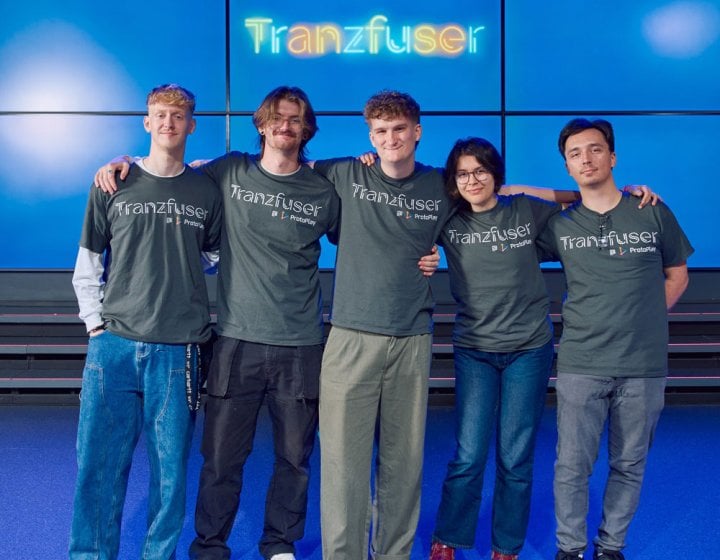
Games Academy graduates win national Tranzfuser competition
04 November 2025
Studio Whalefall, a team of Falmouth Games Academy graduates, is celebrating success after winning T...
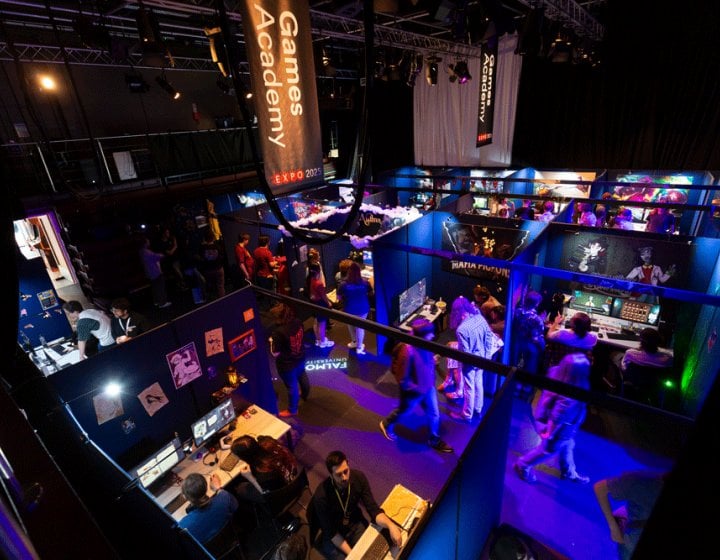
A catalyst for creativity and innovation: a decade of Falmouth University's Games Academy
21 October 2025
When Falmouth University launched its Games Academy in 2015, it did so with a bold premise: that gam...
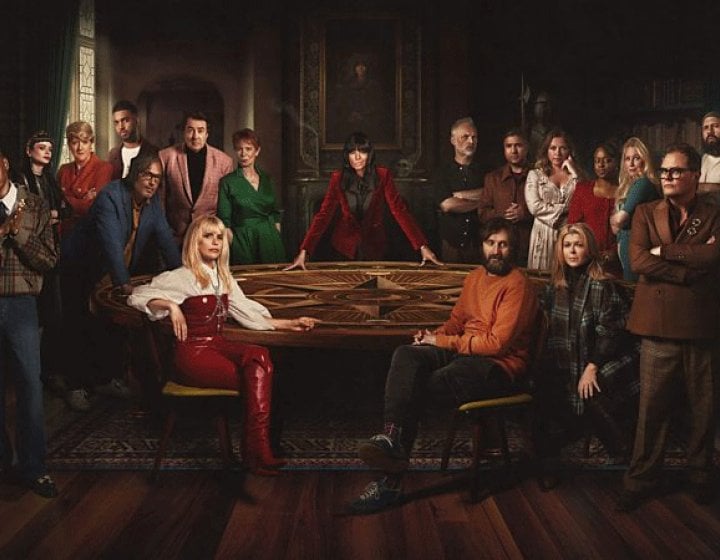
Playing the Game: What Celebrity Traitors reveals about strategy, authenticity and the self
16 October 2025
When The Traitors first appeared on television, few could have imagined that a game once played in t...
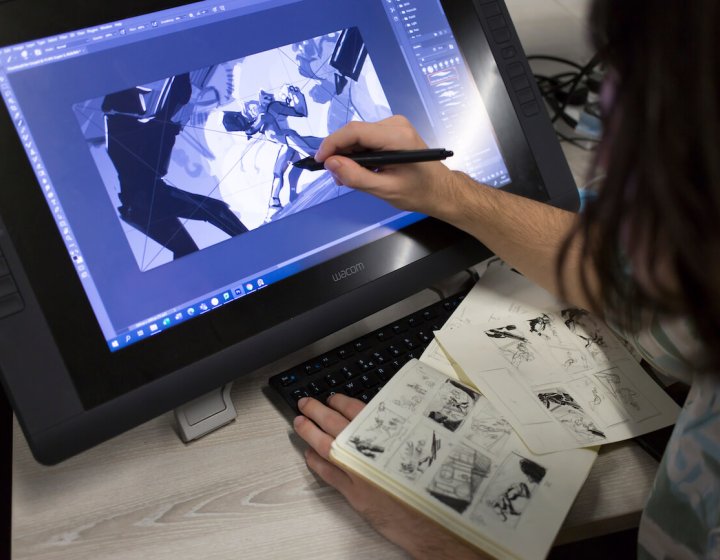
The difference between studying Game Art and Game Development: Art
15 October 2025
With two Game Art undergraduate degrees within the Games Academy, you might need a hand picking betw...
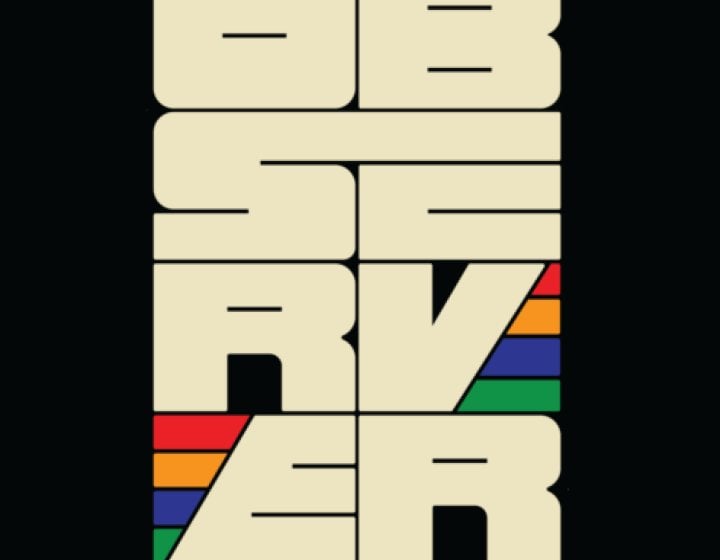
Lecturer’s game studio wins national award for championing games education
07 October 2025
Observer Interactive, the independent studio co-founded by Matty McGrory, Senior Lecturer in Indie G...
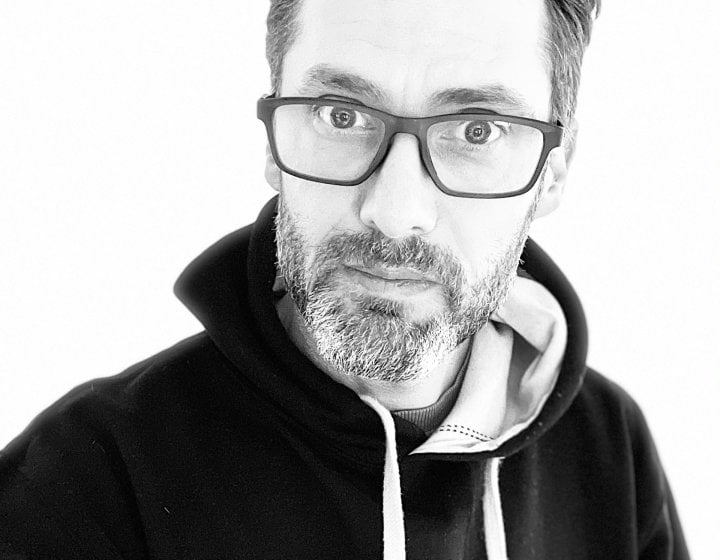
How a passion for cars led to a career in games and teaching Game Art
03 October 2025
Lee Walton’s route into games was anything but typical, moving from car design into roles at leadi...
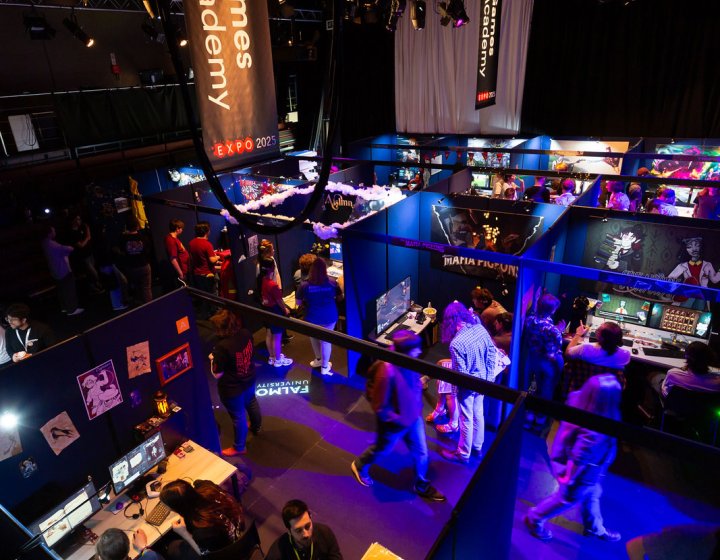
Forging Futures: How Falmouth University’s Games Academy became a catalyst for creativity and innovation
02 October 2025
When Falmouth University launched its Games Academy in 2015, it did so with a bold premise: that gam...
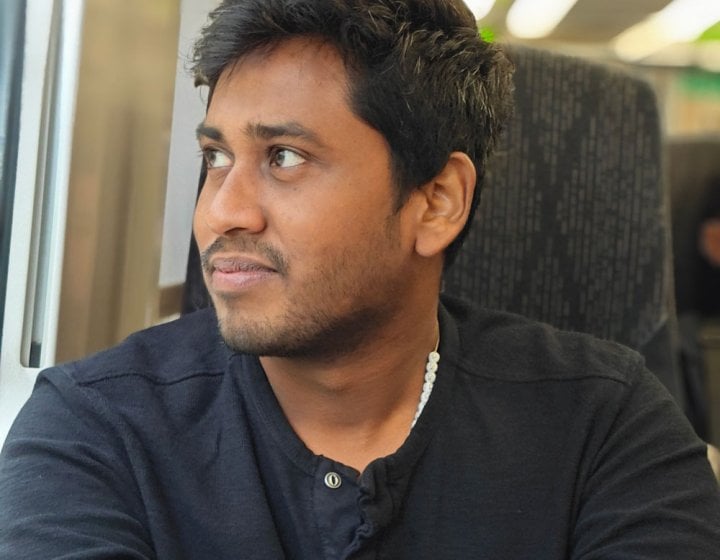
An international student’s journey on Falmouth’s MA Game Art
25 September 2025
For Anosh Saji, choosing to study a master’s in Game Art at Falmouth was about more than gaining s...
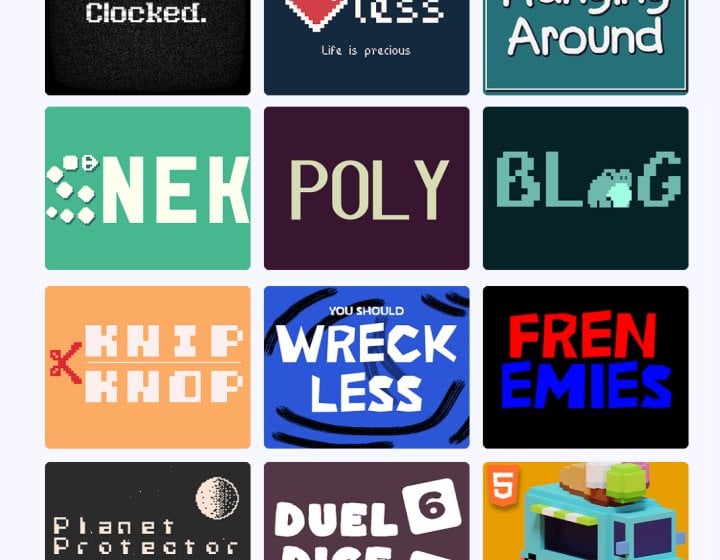
Indie Games Online student completes 12 games in 12 weeks project
23 September 2025
For his final major project on the Indie Game Development MA (Online), Mathijs Koning set himself a ...
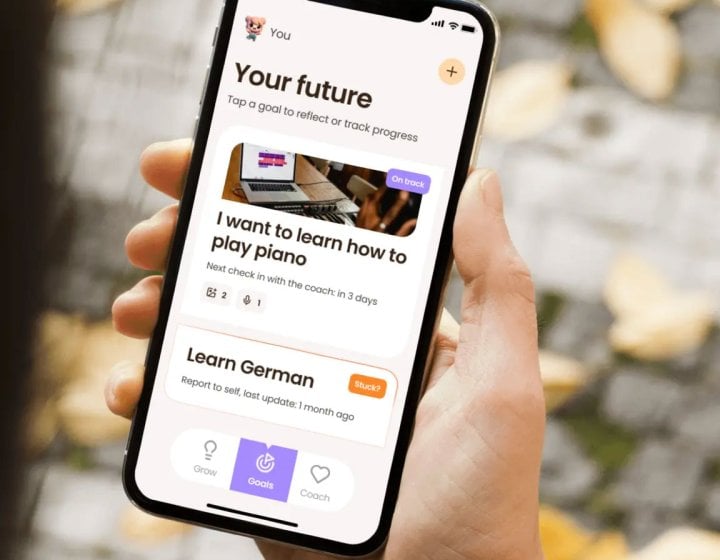
User Experience graduate on exploring scent, further study and starting a business
18 September 2025
When we think about digital design, we tend to think of screens, buttons and code. For User Experien...
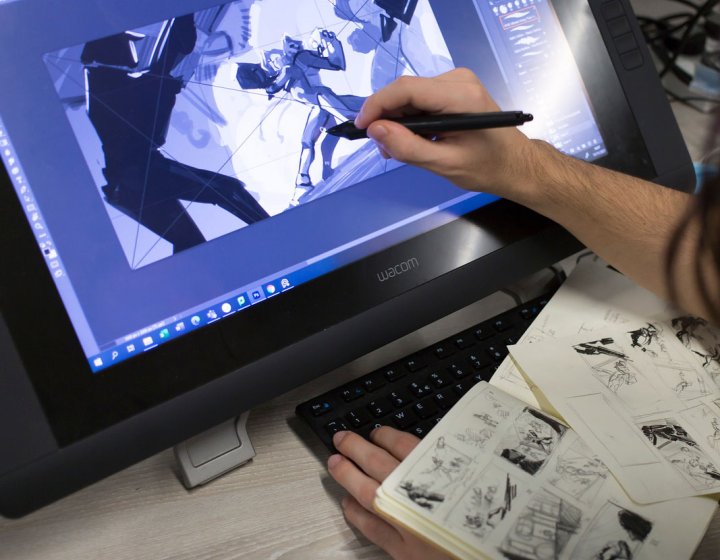
Game Art lecturer on character creation and collaboration
16 September 2025
We chatted with senior lecturer in Game Art, Michael Boylan, on how games are almost never made in i...
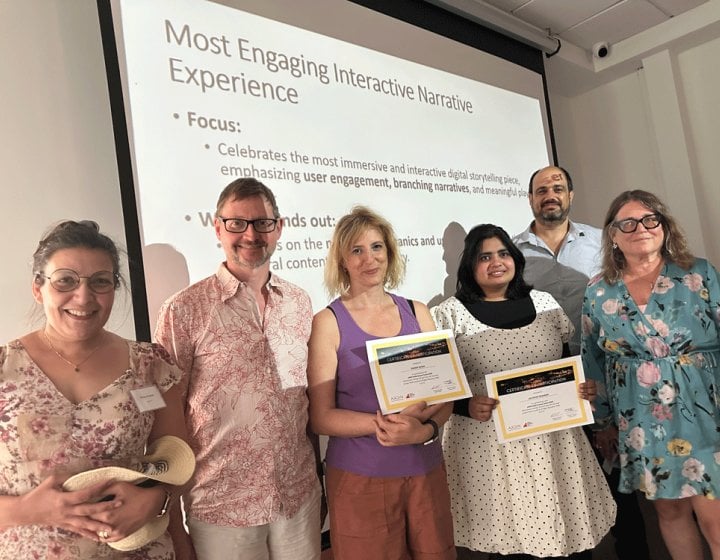
Meet the Game Programming lecturer at the cutting edge of interactive design
16 September 2025
Anjuman Shaheen, Lecturer in Game Programming MSc, has completed an intensive summer school in Malta...

Learning and support
You'll learn through a blend of recorded learning content, learning activities, guest talks, tasks and discussion forums, which you'll access via our dedicated virtual learning environment. This is also where you'll find all key documentation, get course announcements and access extensive learning resources.
How will I be supported?
You'll be supported academically by Online Tutors, who will also deliver weekly learning activities and facilitate the online forums. If you need assistance with anything that isn't directly related to course material, a dedicated Student Advisor team will be on hand to help. You'll also have access to Falmouth University's excellent Employability Service.
You'll master key principles of experience design, spending around 25 hours a week working on your craft. We incorporate optional face-to-face events for all our online students. There will be up to two per year and will typically run over weekends, to fit around your other commitments.
What are my study hours?
Based on the total learning time for the Postgraduate online courses, an average study week can be up to 25 hours. As our online courses are intended to be flexible, the time required to study will vary based on the level of study, the module week, and individual learning pace.
Assessment methods
Assessment provides the course team with a means of offering tailored guidance alongside advice on how to progress knowledge and skills in key areas that relate to the course Learning Outcomes. The course team will identify your strengths and weaknesses as an individual and discuss them with you throughout your time on the course.
Assessments are 100% coursework, submitted in an electronic format to the virtual learning environment, and designed to reflect professional practice. Assessment methods include:
- Projects
- Portfolios
- Pitches
- Papers
- Dedicated easy-to-use virtual learning environment (VLE)
- Accessible online audio / visual content
- A Student Advisor to support you throughout your studies and access to our Student Support Services
- Access to our Employability Service
- 24/7 access to Falmouth's extensive online library of contextual books, journals and resources
- Access to online software tutorials at LinkedIn Learning
- Students' Union community
- Optional in-person events
- Invitation to attend alumni events
Although online students don't have access to on-campus facilities as part of the course, you can hire equipment and access facilities by paying a charge. Find out more about availability and prices here.
Your online study setup
To get the most out of your online studies with Falmouth, we recommend using a desktop or laptop computer with reliable internet access. This will enable you to fully experience our Virtual Learning Environment, which houses your course material, module videos and webinar recordings, discussion forums and more. Please note while a mobile phone or tablet can support you in your studies, they are not suitable as your primary means of engagement.
If you have any questions, our friendly course advisors are here to help.
Meet the team
The course is part of Falmouth’s Games Academy, one of the largest dedicated game development studio spaces of any UK university. You'll learn from a multidisciplinary team from Falmouth Games Academy with expertise across disciplines, bringing together user experience design, programming, art, animation, audio, design and writing.
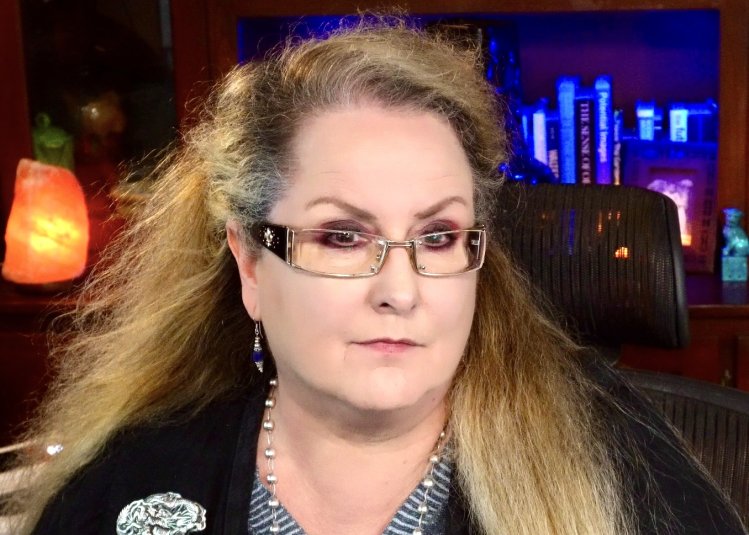
Liz Coulter-Smith
Lecturer and Course Leader, User Experience Design and Indie Game Development
Liz Coulter-Smith is Course Leader for MA User Experience Design and MA Indie Game Development at Fa...

Dr Chengcheng Qu
Online Tutor, User Experience Design MA (Online)
Chengcheng is a highly skilled researcher in Human-Computer Interaction (HCI), with a Ph.D. from Lan...
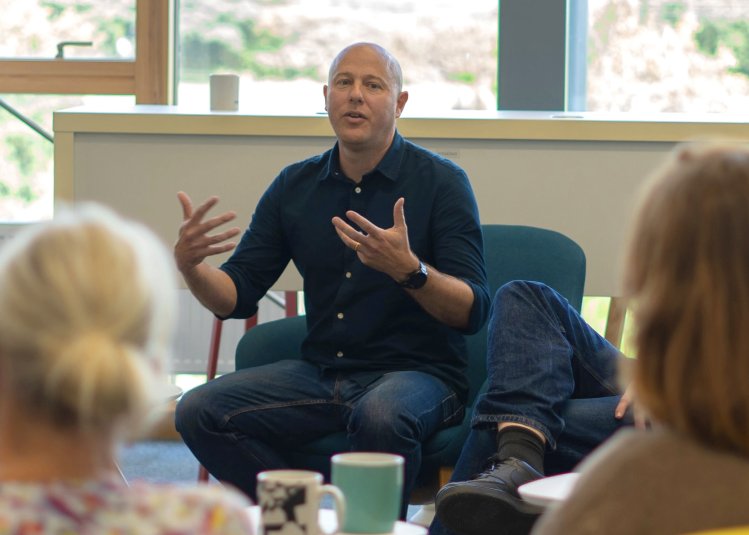
Dr James Branch
Senior Lecturer, Design Strategy
James is a lecturer and researcher specialising in design education. He holds a doctorate in User Ex...
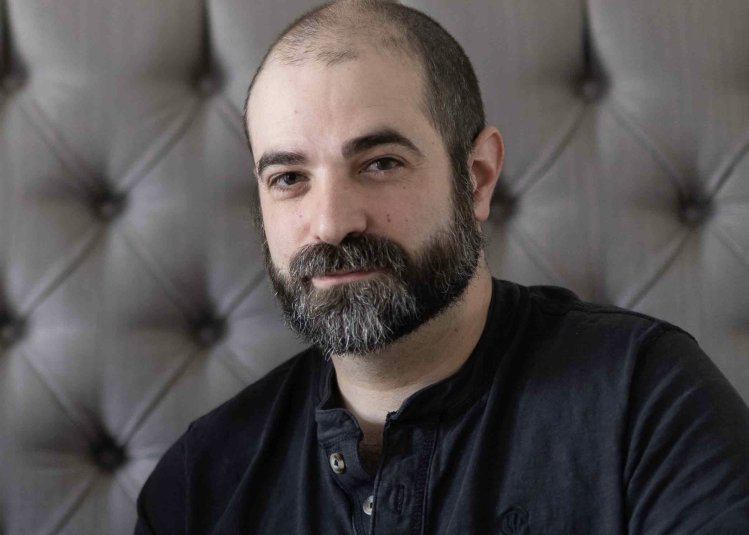
Jason Haritou
Online Tutor, User Experience Design MA (Online)
Jason Haritou is an Online Tutor for our User Experience Design MA (Online). For information on...
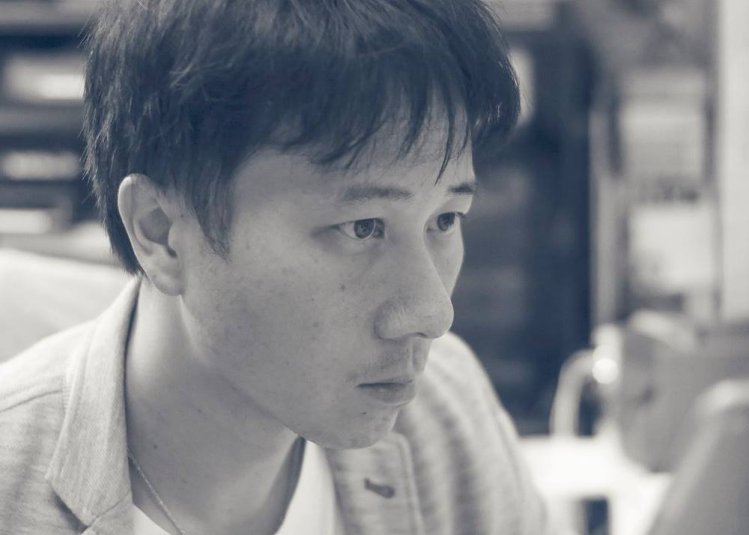
Ken Yiu
Online Tutor, User Experience Design MA (Online)
Ken Yiu is deeply committed to guiding the next generation of designers in creating more thoughtful ...

Yifan Feng
Online Tutor, User Experience Design MA (Online)
Yifan Feng (he/they) is an Online Tutor on our User Experience Design MA (Online) course. He is also...
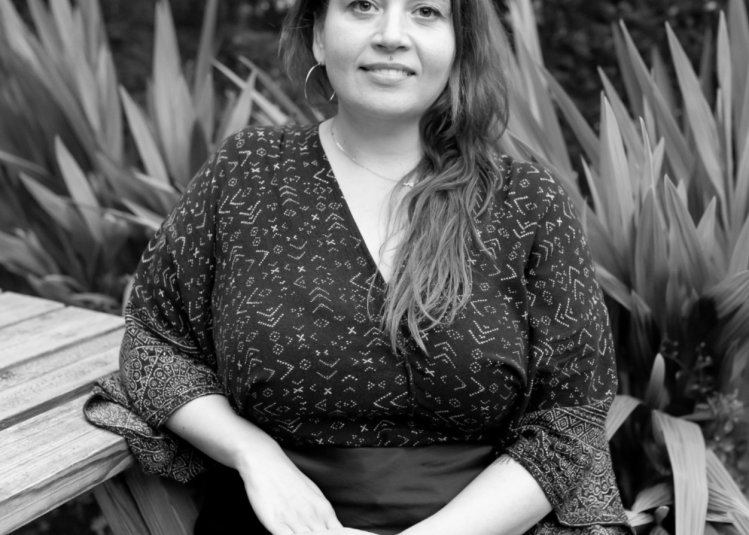
Aleksandra Wruk
Tutor, User Experience Design MA (Online)
Aleksandra Wruk is an Online Tutor on our User Experience Design MA (Online) course. Aleksan...
Some members of staff only teach on specific modules, and your course might not feature every staff member who teaches on the course.
Careers
Our Games Academy graduates have gone on to work as:
-
Creative design practitioners at companies such as MediaTonic, Firesprite, Creative Assembly, Project Gamechanger and Rare
-
Creative AI specialists at companies including Ultrahaptics, Solutionpath and Bewsign
-
Developers and data analysts at companies such as Facebook
-
Consultants in UX/UI and gamification
-
Doctoral researchers in artificial intelligence and/or data science, sponsored by the likes of Google
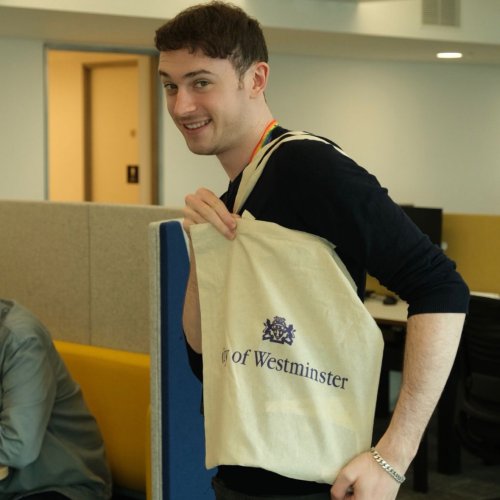
Meet graduate Paul Phillips
We chatted to recent graduate Paul Phillips about his burgeoning career in user experience design.
Read moreHow to apply
Speak to us about the course
If you'd like to talk to an Advisor about this course or your application, get in touch with us via the form below.
Ask us a question
Apply now
Ready to apply for postgraduate study? We have three start dates a year: January / May / September. Select the start date you'd like to apply for in the drop-downs below and then click the relevant apply button to begin.
You can apply to begin your studies in May 2026 by selecting the relevant course route below:
You can apply to begin your studies in September 2026 by selecting the relevant course route below:
You can apply to begin your studies in January 2027 by selecting the relevant course route below:

How to apply for our Online Degrees
Find out moreAn honours degree or Level 6 equivalent qualification is desirable. However, candidates without a degree or formal qualification are still encouraged to apply. If you'd like to discuss our entry requirements, speak to an advisor.
For more information regarding equivalent international qualifications and Accreditation of Prior Learning (APL) either request information with our easy online form, or read about it on our apply page.
If English is not your first language you will need to meet the same standard which is equivalent to the IELTS Academic 6.5 overall score, with at least 5.5 in Reading, Writing, and Listening, and a minimum of 6.0 in speaking.
We also accept a range of other recognised English language qualifications. You can visit our English Language Requirements page for more information.
For more information about equivalent international qualifications or English language requirements please contact our friendly Course Advisors.
What we're looking for
This UX Design master's degree is for anyone who is excited by the opportunities presented by technology and who wants to carry out practice-based research to create thoughtful and engaging user experiences.
We are looking for people who are interested in working with other designers, developers, and creatives within a distributed studio environment, experimenting with cutting-edge technologies, design and software.
You may be early in your career following completion of related undergraduate study or further along in your career but interested in re-training and learning new relevant technical skills or starting a business.
This course has three intakes per year: January, May and September.
| Academic start date* | Application deadline | Early Bird Discount deadline |
|---|---|---|
| 26 May 2026 | 6 May 2026 | 30 March 2026 |
| 21 September 2026 | 7 September 2026 | 3 August 2026 |
| 18 January 2027 | 8 January 2027 | 23 November 2026 |
Please note:
*Virtual Welcome Week begins the week before the academic start date. During this time, our Student Advisor team will host Welcome Webinars and be in touch with practical information on how to study online.
An Early Bird discount is available for early applications. Currently the scheme offers up to £600 off MA tuition fees: £300 if you apply by the Early Bird discount submission deadline, and a further £300 off your tuition fees if you receive an offer and within two weeks you accept the place and pay the acceptance fee. Both these payments would be applied to your final fee instalment. Please note the discount amount is subject to change for future intakes.
| Early Bird discount submission deadline | Academic start date |
|---|---|
| 24 November 2025 | 19 January 2026 |
| 30 March 2026 | 26 May 2026 |
| 3 August 2026 | 21 September 2026 |
To discuss all our discount opportunities, contact an advisor.
Fees, costs & funding
Tuition fees
At Falmouth University, you can choose to pay your tuition fees for our online postgraduate courses up front, or in instalments.
MA/MSc course (2 years part time)
- Total fee £12,150 (incl. acceptance fee)
- Two instalments of £6,075, paid at the start of each year, or six instalments of £2,025 at the start of each study block.
PGDip course
- Total fee £7,921 (incl. acceptance fee)
- Four instalments of £1,980.25 at the start of each study block.
Your acceptance fee is deducted from your first instalment. Any discounts you have been awarded are deducted from your final instalment(s).
At Falmouth University, you can choose to pay your tuition fees for our online postgraduate courses up front, or in instalments.
MA/MSc course (2 years part time)
- Total fee £12,150 (incl. acceptance fee)
- Two instalments of £6,075, paid at the start of each year, or six instalments of £2,025 at the start of each study block.
PGDip course
- Total fee £7,921 (incl. acceptance fee)
- Four instalments of £1,980.25 at the start of each study block.
Your acceptance fee is deducted from your first instalment. Any discounts you have been awarded are deducted from your final instalment(s).
Tuition fees for September 2027 will be confirmed in summer 2026.
Tuition fees are set annually and are subject to review each year. The University may therefore raise tuition fees in the second or subsequent years of a course, in line with inflation and/or the maximum permitted by law or Government policy. Students will be notified of any changes as soon as possible.
The figures above don't include accommodation and living costs

Early Bird discount available
Request informationTypical course costs
As part of studying User Experience Design MA you will require:
Laptop/computer
You’ll require a desktop/laptop at an expense of around £1,300. This machine should have a minimum operating system of Windows XP SP3 or Mac OSX 10.6, 1GB of RAM, and a 2GHz processor. It will also need to be capable of running our virtual learning environment.
Optional face-to-face events
You will be expected to cover your own travel, accommodation and subsistence costs to attend these events.
There were no additional costs recommended for students joining this course in September 2025.
Funding and scholarships for postgraduate students
There are loans, scholarships, awards, graduate discounts and alternative funding sources for domestic and international postgraduate students. Read about them on our Postgraduate Funding page.
Find out about funding
Ask a student
What better way to find out about life at Falmouth University than by asking our current students?
From course details and academic support, to the social scene and settling in, our students are ready and available to answer any questions you might have. Simply set up your account, send them a question and they'll get back to you within 24 hours.
Speak to an advisor
Do you have questions about the course or studying online with Falmouth? Fill in our simple online form and we'll get in touch to support your application journey.
Submit form
Similar courses

Digital Marketing MSc
On this industry-informed Digital Marketing master’s programme, you will investigate the true valu...
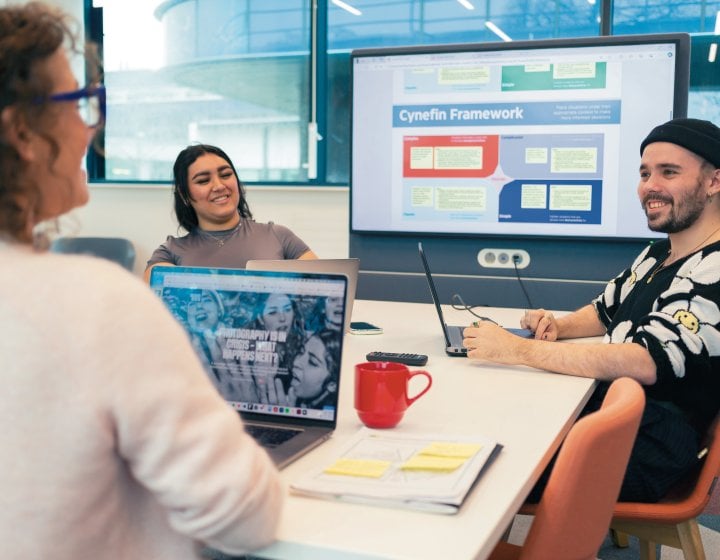
International Business Management MSc
Learn to thrive in the fast-paced, ever-changing world of international business, adopting a sustain...

Sustainable Fashion MA (Online)
Become a conscious changemaker in the 21st century fashion industry. Position yourself as a catalyst...
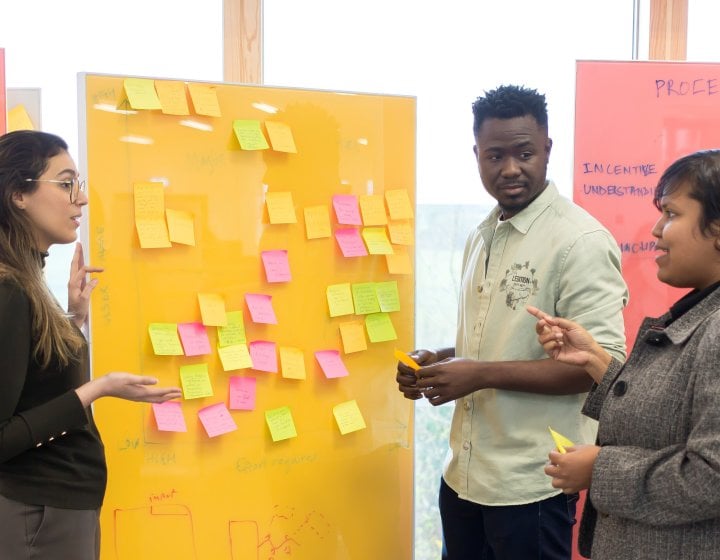
Entrepreneurship & Innovation Management MSc
Develop the practical skills to become a sustainable, creative innovator and resilient entrepreneur,...
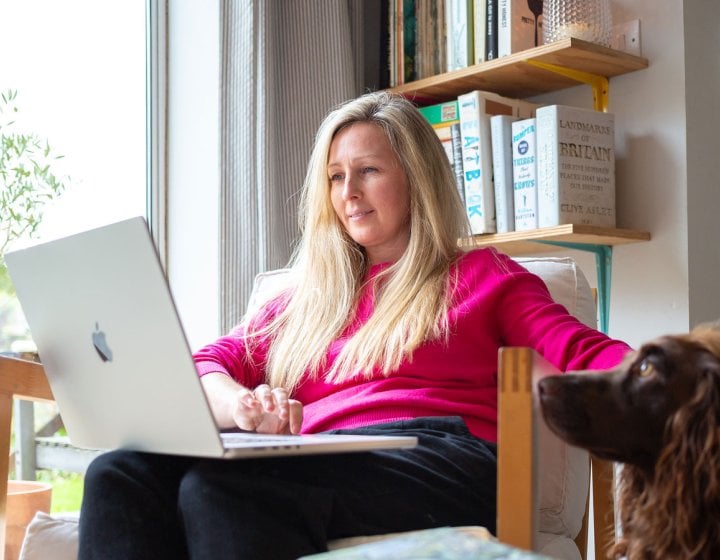
Marketing and Digital Communications MA (Online)
Elevate your marketing expertise for a digital-first world.